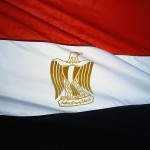 After we went through the Libyan border fairly quickly, a new test awaited us: the Egyptian border. The border with Egypt and especially the sluggish bureaucracy there is notoriously under overlanders. We had read stories about the procedure at the border and they were not always positive, telling about long delays (up to 10 hours), paying high sums of bribes, unnecessarily long discussions about seemingly trivial things (again with a view to bribes) and interrogations of several hours. Apart from the administrative side, we also read that travelers were harassed and robbed. Not a pleasant prospect.
After we went through the Libyan border fairly quickly, a new test awaited us: the Egyptian border. The border with Egypt and especially the sluggish bureaucracy there is notoriously under overlanders. We had read stories about the procedure at the border and they were not always positive, telling about long delays (up to 10 hours), paying high sums of bribes, unnecessarily long discussions about seemingly trivial things (again with a view to bribes) and interrogations of several hours. Apart from the administrative side, we also read that travelers were harassed and robbed. Not a pleasant prospect.
With this information in mind, we were well prepared for a possibly long day. In Libya, we bought enough bread, toppings and water for a whole day. We agreed with Billy and Ross that we would try to be at the border as early as possible, so if we would have to wait we would at least do that in the daylight. All valuables such as cameras, the laptop, the leatherman and binoculars were stuffed on the bottom of our bags, so they could not be taken just like that. I had all the ‘feminine’ things I could think of (my toiletry bag, the peewee, pads and tampons) put at the top of my bags, hoping to scare away border officials when seeing those personal (and by men often considered ‘dirty’) things. I had also read that it would not hurt to cover my hair with a scarf, so I also put that in my tank bag. Finally I had a whistle in my tank bag. If I would whistle Peter would immediately come to rescue me ….
—
The border between Libya and Egypt is a long road with buildings, gates, barriers and long lines of people waiting. We cannot read the Arabic texts on the various buildings and only the images of pyramids and hieroglyphics suspect that we have arrived at the Egyptian border. The four of us calmly drive on until someone waves us to one of the buildings. One of the men asks for our passports and our visas. We do not have a visa for Egypt yet, but we can buy it for 200 Egyptian pounds or 40 Libyan dinar. Although the exchange rate does not seem right, we each pay the requested amount after which our passports are taken inside the office.
Some time later we get our passports back. When we open it we do not find a visa, there is no stamp and there is no “visa card”. On our guard not to be fooled we ask where the visa is. They do not give us a real answer, but we do get a pink piece of paper. It turns out to be the receipt of the payment. Again we cannot read the amount in Arabic numerals, but we trust that it was not just any amount (in bribes), otherwise they would probably not have given a receipt. They indicate that we are allowed to drive on.
A few hundred meters further we pass a large building with “Entry” above the door. Some men indicate that we should stop here to get a stamp in our passports. Peter and Billy take our four passports inside, while Ross and I stay with the bikes. It is busy in the street. Everywhere are heavily loaded vans and people walking with heavy suitcases. I stay close to the bikes and try not to attract any attention. An impossible task, because with those four big bikes and flashy suits we once again are like an attraction. Several people come up to us, to chat or to change money. The many young boys that hang around us want to practice their English. In most cases, they know only one sentence; “How are you”? they call out while they run passed us making all sorts of gestures.
When the group around us is too big, a young man in a black uniform steps forward. He looks angry and calls something in Arabic to the bystanders. Within seconds the whole group has dissolved and everyone is at the other side of the street. The man, Malek, appears to be an agent with the border police. He had been standing in front of the large building with some of his colleagues, but he now joins us. Whenever the bystanders are too close, he sends them away giving Ross and myself some space.
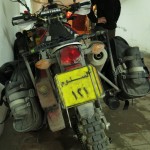 After some time, Peter and Billy come back out again. Inside they were sent from one office to another in pursuit of the man with our passports. No stamp had been put in yet. It now appeared that the officials wanted to see all four of us. That means that we have to leave our bikes with all our stuff on it outside. Malek reassures us that he will watch our bikes.
After some time, Peter and Billy come back out again. Inside they were sent from one office to another in pursuit of the man with our passports. No stamp had been put in yet. It now appeared that the officials wanted to see all four of us. That means that we have to leave our bikes with all our stuff on it outside. Malek reassures us that he will watch our bikes.
I remove my motorcycle helmet which I had warm up until now and replace it with my scarf which I wrap around my head. The four of us go into the building. We follow one of the officials into a dark corridor. It stinks of waste and urine. We pass several offices. A smaller office filled with smoke where three men are bent over some paper discussing loudly. A bigger office with a large desk where three men are watching television. A kitchen where coffee and tea is sold. In the hall way people are waiting against the walls. When we come into a larger hall and step into the light we can see how dirty everything is. The floor is black, as is the bottom part of the wall. The smell is horrendous, especially in the corners. On the stairs a woman is yelling at a young customs officer while her family tries to appease her. A little further a large group of men is waiting in front of a closed door. Every time the door opens, they each out their passport in the air waiving desperately hoping that they will be next. It is a stinky chaos.
After we have waited for a while, not knowing what for and how long, one of the officials comes towards us. After he has matched our faces to our passports, he returns our passports to us. There is no stamp in yet.
We are escorted back outside, where Malek is already waiting for us at the bikes. Just as we are standing outside, another customs officer walks up to us. He looks neat, with pants, dress shoes, a shirt and a long dark raincoat. It is sunny but not very hot and probably quite fresh for the Egyptians. He has a small mustache and thus resembles Peter Sellers as Inspector Clouseau from the Pink Panther. He asks whether one of us can come with him with the passports. Peter offers to go inside, while Billy, Ross and I stay with the bikes.
We do not know how long it will take and want to be ready to leave as soon as we can. After the border, we still have a journey of 280km to go to Marsa Matrouh. But it takes a long, long time. Billy makes himself comfortable and reads up on Egypt on his motorbike. Ross tries to put his newly learned Arabic in practice. I sit on my bike and wait. Malek is still with us and keeps all bystanders at a distance. He tries had to talk chat with us with his limited English, while he gives us sunflower seeds, nuts and drinks.
After about 2.5 hours (!) later Peter returns with Inspector Clouseau. It turns out that customs had done some background research on us in the meantime. Peter had spent most of the time sitting in an office where he was interrogated. He had to answer questions about our marital status, our work, the trip, the route in Egypt and also about Billy and Ross. The questions were posed in English by a senior official, but an unkind cunning looking man beside the official whispered all the questions to him first. The man sat opposite Peter and watched him closely as he answered the many questions while he was also trying to find information about us on the internet using three different phones.
The hard work of Peter and the long wait had not been in vain because we passed the test and now each had a stamp in our passports! We are allowed to go into Egypt. Next up are the bikes.
As if we are in a rush after that long wait, Inspector Clouseau now asks us to hurry and follow him. After 300 meters he points to a baggage scanner where we have to take our luggage. It is very crowded, because not only our stuff but also all luggage from other travelers has to go through the only scanner they have. While we go back and forth between the baggage scanner and our bikes, Malek again is of great value. On the other side of the scanner is a large pile with all our stuff where Malek stands growling like a rottweiler when anyone gets too close. Once everything is checked and is attached to the bikes again, Inspector Clouseau escorts us to the next office 50 meters away where we have to import the bikes.
Egypt is the first country where we use our ‘Carnet de Passages and Customs’. That is a kind of passport for the bikes which allows us to import and export the bikes without having to pay at each border. Without a Carnet we would have had to pay 8 times the value of each bike at the Egyptian border (which you just have to hope you get it back when you leave Egypt). Instead we now paid a deposit to the ADAC (the German equivalent of the AA). It is important that all stamps in the Carnet will be in the right place, because only then the deposit is returned to us when we return home.
It appears to be quite an ordeal to have our carnets stamped. A first gentleman comes with a piece of paper and a pencil to record the chassis number. He does not write it on the paper, but takes a rubbing by putting the piece of paper on the numbers and scratching with a pencil. Then we are asked to pay to a second gentleman, before a third gentleman fills out an official looking document with data on each bike (the colour, the brand, the type, etc.). Everything in Arabic, so we do not understand a word he wrote down.
With that official document, our carnet and copies of our passports and the registration documents of the bikes we follow Inspector Clouseau to gentleman number four. He reviews the file, sorts the paper, resorts the papers and then signs the carnet. A stamp is still missing.
In another office, we give the files to gentleman number five. He sorts all the papers again in a slightly different order and explains that, before he can process the carnet, we first have to pay. So we walk to gentleman number six to pay and return to gentleman number five. Finally the ink pad and the stamp are out. It is extraordinary to see what actions the good man still has to do before he actually puts a stamp on the carnet: a signature here, a staple in a stack of papers there, some notes in a notebook, etc., etc., etc.
Eventually we leave gentleman number five, each with a stamp in our passports for the bikes, but without the stamped carnet! It has been stamped, but we can only take it after we have received Egyptian license plates, an Egyptian drivers license and have bought insurance.
 The procedure now feels very similar to when Asterix and Obelix have to find permit A-38 in the “Place that sends you mad” (in the book “Asterix and the twelve tasks”). We are sent from one office, to another and again to another.
The procedure now feels very similar to when Asterix and Obelix have to find permit A-38 in the “Place that sends you mad” (in the book “Asterix and the twelve tasks”). We are sent from one office, to another and again to another.
The four of us again follow Inspector Clouseau to gentleman number seven where we take out insurance for 60 Egyptian Pounds per bike. With receipts of the insurance we go into the office next door (to gentlemen number eight and number nine) who provide us with an Egyptian license plate and a drivers license. After we have fixed the number plates to the bikes, we are almost ready to leave. Billy walks with Clouseau back to gentleman number five to pick up our carnets. After 15 minutes he comes back, waving the stamped carnets in the air. We are ready, we can ride into Egypt now!
The entire procedure at the Egyptian border had at that time already taken more than seven hours(!), while we had already passed some time at the Libyan border before that. The process would have taken even longer if Inspector Clouseau had not helped us. He made sure we got in touch with the right people in the right order and also made sure we were treated with priority.
We eventually paid around 1015 Egyptian Pound per bike, which amounts to approximately 100 euro. Not a bad result because we had read that others had paid upto three times that amount. Moreover, we received receipts for all amounts, which probably means that we have not paid any bribes (at least not knowingly). Even Inspector Clouseau who spent the full 7 hours with us did not ask for any ’gift’ at the end of the day.
We have been treated very friendly and were welcomed by everyone in Egypt. Often they apologized for the process while asking “First time in Egypt and last time in Egypt?”. We have not been annoyed or harassed by anyone. Aside from the long wait and the extremely inefficient process, we crossed the border without any difficulty. The whistle could remain in my tank bag.
We say goodbye to Inspector Clouseau. He also apologizes for the inefficient procedure and welcomes us to Egypt. When we want to drive away, there is a police car waiting for us that will escort us in the direction of Marsa Matrouh, the place where we want to spend the night. With blaring sirens they bring us to the exit. Only 100 meters further we are already stopped. Although the customs and police found that we were allowed to leave the border, the military at the border do not agree, or at least also want to say something about this. After we are checked again and this (seemingly unnecessary) hurdle is taken, we can finally leave. The police put on the siren and with good speed we drive into Egypt at the end of the afternoon.
We can pass the first five police checkpoints without having to stop. Our escort leads us past the long lines of waiting cars, while shouting through the speaker that everyone should move out of the way.This is great! If after some time we turn onto the highway, the police lets us pass and waves us goodbye.
After about 250km we are requested to stop at a police checkpoint just outside Marsa Matrouh. The policemen there were clearly aware of our arrival and indicate that we will be escorted to Marsa Matrouh by the police. Our escort is not there yet, so we have to wait. We are invited by the camp fire (in the middle of the highway) and treated to tea. If the pot of tea is empty, we leave. With blaring sirens we are escorted into the city centre, where we are dropped off in front of a large hotel on the seafront in Marsa Matrouh at around 21:00 hrs.
After a hugely strenuous week in Libya and a long day at the border, we are exhausted when we check in at the hotel. But we are hungry and ….. it’s New Year’s Eve and Billy’s birthday at midnight! After we have freshened up we walk into the city centre hoping to celebrate. It soon becomes clear that this may not be the place for a good party. Marsa Matrouh is a city where a lot of conservative Muslims live that follow a different calendar and do not celebrate New Years Eve today. Moreover, we cannot find any bear in the surroundings of the hotel to celebrate our New Year. So after a quick burger and a phone call home at midnight (with one hour time difference) we go to bed at 00:30, still exhausted but proud of this chapter in our adventure.
At the border we were not allowed to take any pictures, so unfortunately we have no extensive photo report this time.
Distance travelled to Marsa Matrouh: 5398km (3,355 miles)
PS We gave up our resistance and now also have a Facebook page. Since the blog posts are sometimes a bit delayed but we keep travelling in the meantime, you can also find some information on FB. Check out: www.facebook.com/amsterdam.toanywhere





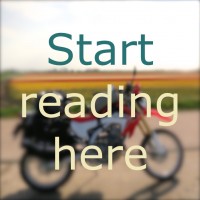
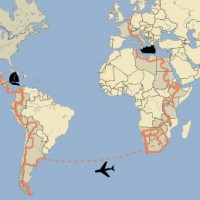
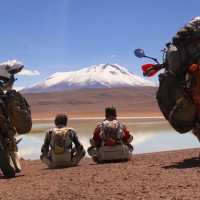
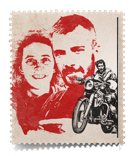
Jemigdepemig Leo wat gaaf!! Sorry dat ik zo laat ben, maar ik ben bijgelezen en ik ben digitale groupie vanaf nu! Goeie reis en blijf schrijven…. XX
Hi Guys,
I’m really glad ye enjoyed Libya and got into egypt safely, enjoy the rest of the ride. If you need help getting from Aswan to Wadi Halfa contact Kamal in Aswan. He’ll guide you through the whole enjoyable process.
Ride on
Kev
Wij zijn de schoonouders van Yvette en na het lezen van jullie verslag aan de Egyptische grens wens ik jullie veel succes met de verdere reis en vind het ook leuk om de verslagen te lezen. Veel sterkte en eens hoop plezier. Groetjes Arie en Dineke van Ginkel
Wat een avontuur! Leuk om te lezen! Nog een hele goeie en veilige reis verder. Veel liefs van Peter en Marian
Als vips begeleid…wauw!!
Liefs van ons.
Hoi, ik dacht dat de AKZO veel en lastige procedures had maar in Egypte kunnen dat dus nog veel beter. Nog heel veel plezier met jullie avontuur. Joke en Janleen
Aan het eind van jullie reis alle verhalen bundelen en uitgeven als boek. Wordt een bestseller!
Ongelofelijk zo’n dag.
Jeetje Leonie hebben jullie wel tijd om te reizen je maakt zulke lange (zeker mooie) verslagen. XXX